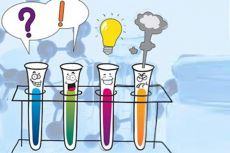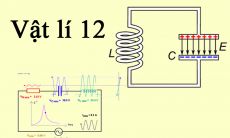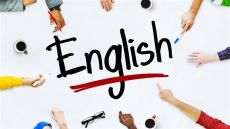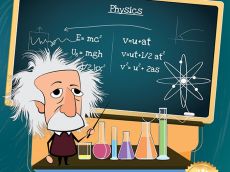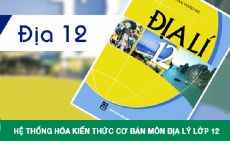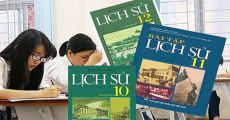Đề thi HK1 môn Tiếng Anh 12 năm 2020
Trường THPT Văn Lang
-
Choose the word that has the main stress placed differently from that of the others.
Câu 1:
Choose the word that has the main stress placed differently from that of the others: apply, moment, nation, comfort.
A. apply
B. moment
C. nation
D. comfort
-
Câu 2:
Choose the word that has the main stress placed differently from that of the others: reasonable, volcanic, unpleasant, throughout.
A. reasonable
B. volcanic
C. unpleasant
D. throughout
-
Choose the word whose underlined part in bold in pronounced differently from the rest.
Câu 3:
Choose the word whose underlined part in bold in pronounced differently from the rest: shown, known, snow, town.
A. shown
B. known
C. snow
D. town
-
Câu 4:
Choose the word whose underlined part in bold in pronounced differently from the rest: books, maps, cats, dogs.
A. books
B. maps
C. cats
D. dogs
-
Choose the best answer to complete each of the following sentences
Câu 5:
My sister, _________ has just got a job in a computer company, is very keen on playing computer games.
A. who
B. that
C. whom
D. all are correct
-
Câu 6:
“I’ll speak calmly, I really will!” he said.
A. He begged me to speak calmly.
B. He told me to speak calmly.
C. He promised to speak calmly.
D. He agreed to speak calmly.
-
Câu 7:
In addition to a competitive salary, the company offers attractive ______ benefit.
A. employee
B. employment
C. employer
D. employing
-
Câu 8:
Tomorrow I ________ an old friend who has just come back from Africa.
A. will be meeting
B. will meet
C. meet
D. am meeting
-
Câu 9:
He was offered the job despite his poor _________
A. preparations
B. achievements
C. expressions
D. qualifications
-
Câu 10:
Ha Noi, __________, is the capital of Vietnam.
A. which is my hometown
B. where I was born
C. in which I was born
D. All is correct
-
Câu 11:
I didn’t meet him yesterday so I couldn’t tell him about that.
A. I met him yesterday so that I could tell him about that.
B. If I hadn’t met him yesterday, I couldn’t have told him about that.
C. If I had met him yesterday, I could have told him about that.
D. I could tell him about that because I met him yesterday.
-
Câu 12:
“Let me help you carry that suitcase” John said to the old lady.
A. John told the old lady to carry that suitcase.
B. John offered to carry that suitcase for the old lady.
C. John told me to carry that suitcase for the old lady.
D. John suggested carrying that suitcase for the old lady.
-
Câu 13:
“The last time I wrote to him was in 1996”.
A. I haven’t written to him was in 1996.
B. I haven’t written to him was since 1996.
C. I haven’t written to him in 1996.
D. I haven’t written to him since 1996.
-
Câu 14:
My car still runs surprisingly well __________ it is over ten years old.
A. but
B. in spite of
C. though
D. despite
-
Câu 15:
By the time you received her letter, she __________ in Paris.
A. has arrived
B. would have arrived
C. had arrived
D. arrived
-
Câu 16:
Being aware _________ the importance of economic reforms, the Vietnamese Communist Party initiated an overall economic reform policy.
A. in
B. at
C. for
D. of
-
Câu 17:
The introduction of appropriate farming practices to Vietnam farmers can help them achieve a higher .......... output.
A. guideline
B. productivity
C. achievement
D. renovation
-
Indicate an error in each of the following sentences
Câu 18:
Indicate an error in each of the following sentences: I have warned(A) you on(B) the difficulties you have to face(C) when applying for(D) the job.
A. have warned
B. on
C. have to face
D. for
-
Câu 19:
Indicate an error in each of the following sentences: The old man managed(A) to get to sleep(B) because(C) there was(D) a lot of noise.
A. managed
B. to sleep
C. because
D. was
-
Câu 20:
Indicate an error in each of the following sentences: When(A) they came(B) home, they didn’t buy(C) nothing from(D) the supermarket.
A. When
B. came
C. didn’t buy
D. from
-
Choose the correct words to fill in the following passage
It is difficult to write rules that tell exactly when we should apologize, (21) ______ it is not difficult to learn how. If we have done something to hurt someone’s feelings, or if we have been (22) ______ or rude, we should apologize. An apology indicates that we realize we have (23) ______ a mistake, and we are sorry (24) ______ it. It is a way of expressing our regret for something. When we (25) ______, we admit our wrongdoing, usually offer a reason for it and (26) ______ regret.
Câu 21:
(21) ..................
A. and
B. for
C. but
D. so
-
Câu 22:
(22) ....................
A. friendly
B. kind
C. polite
D. impolite
-
Câu 23:
(23) ....................
A. produced
B. made
C. done
D. created
-
Câu 24:
(24) ................
A. for
B. about
C. at
D. in
-
Câu 25:
(25) .................
A. accept
B. admitted
C. laughed
D. apologize
-
Câu 26:
(26) .................
A. apologize
B. express
C. give
D. report
-
Read the following passage carefully and answer the questions, from question 37 to question 40
Students working for their first degree at a university are called undergraduates. When they take their degree we say they graduate, and then they are called graduates. If they continue studying at university after they have graduated, they are called post- graduates. Full time university students spend all their free time studying. They have no other employment. Their course usually lasts for three or four years. Medical students have to follow a course lasting for six or seven years. Then they graduate as doctors. In Britain, full–time university students have three terms of about ten weeks in each year. During these terms they go to lectures or they study by themselves. Many students become members of academic societies and sports clubs and take part in their activities. Between the university terms they have vacations (or holiday periods). Their vacations are long, but of course they can use them to study at home.
Câu 27:
Students who continue studying at university after having graduated are called ________.
A. undergraduates
B. postgraduates
C. graduates
D. pre – graduates
-
Câu 28:
Between the university terms, students have their ________.
A. tests
B. vacations
C. practice time
D. employment
-
Câu 29:
The phrase “by themselves” means _________.
A. on their own
B. lonely
C. alone
D. A&C
-
Câu 30:
Which of the following is NOT correct?
A. Full time university students don’t have other employment.
B. Medical students spend six or seven years studying at university.
C. A university course usually lasts for three or four years.
D. Students in Britain have no holiday periods.

